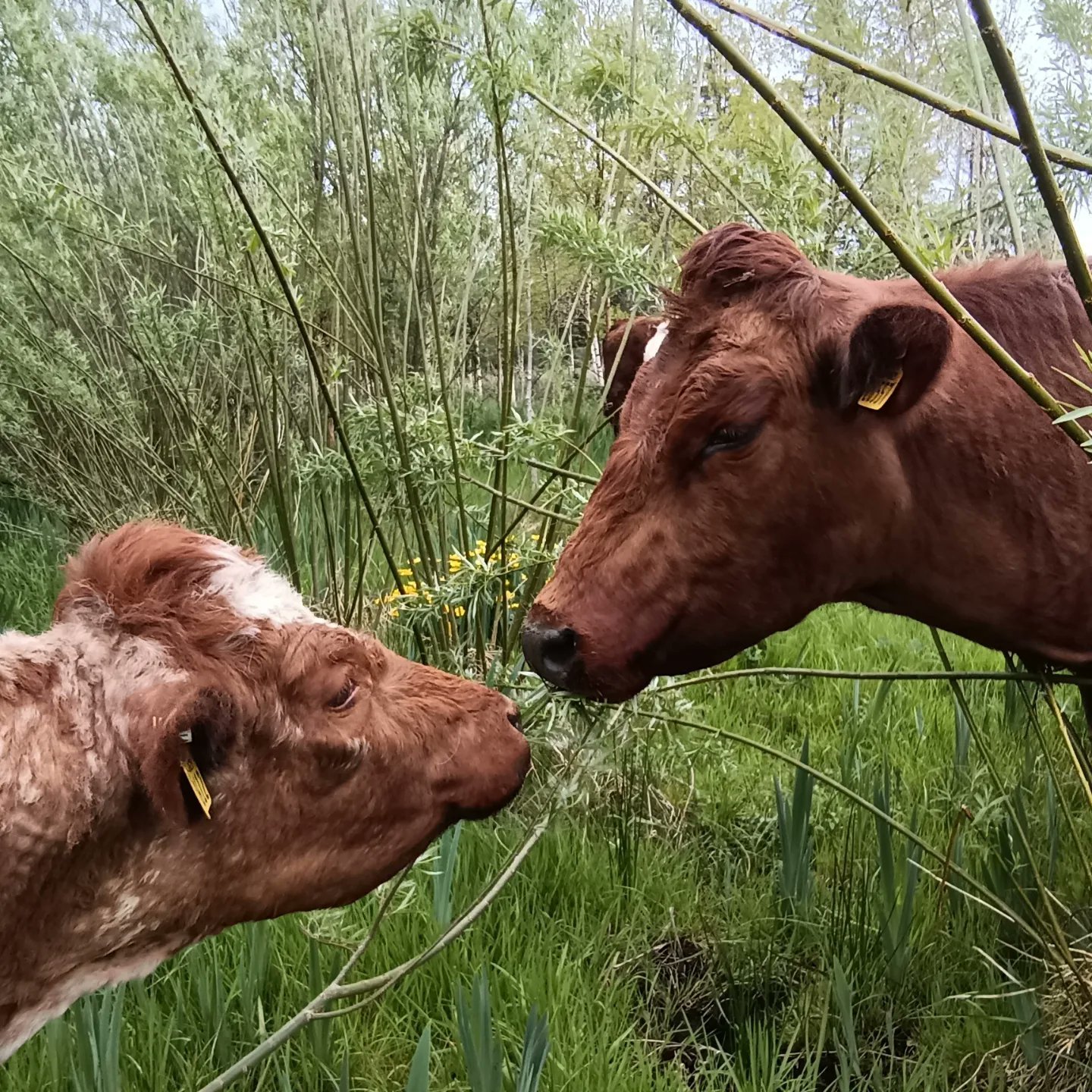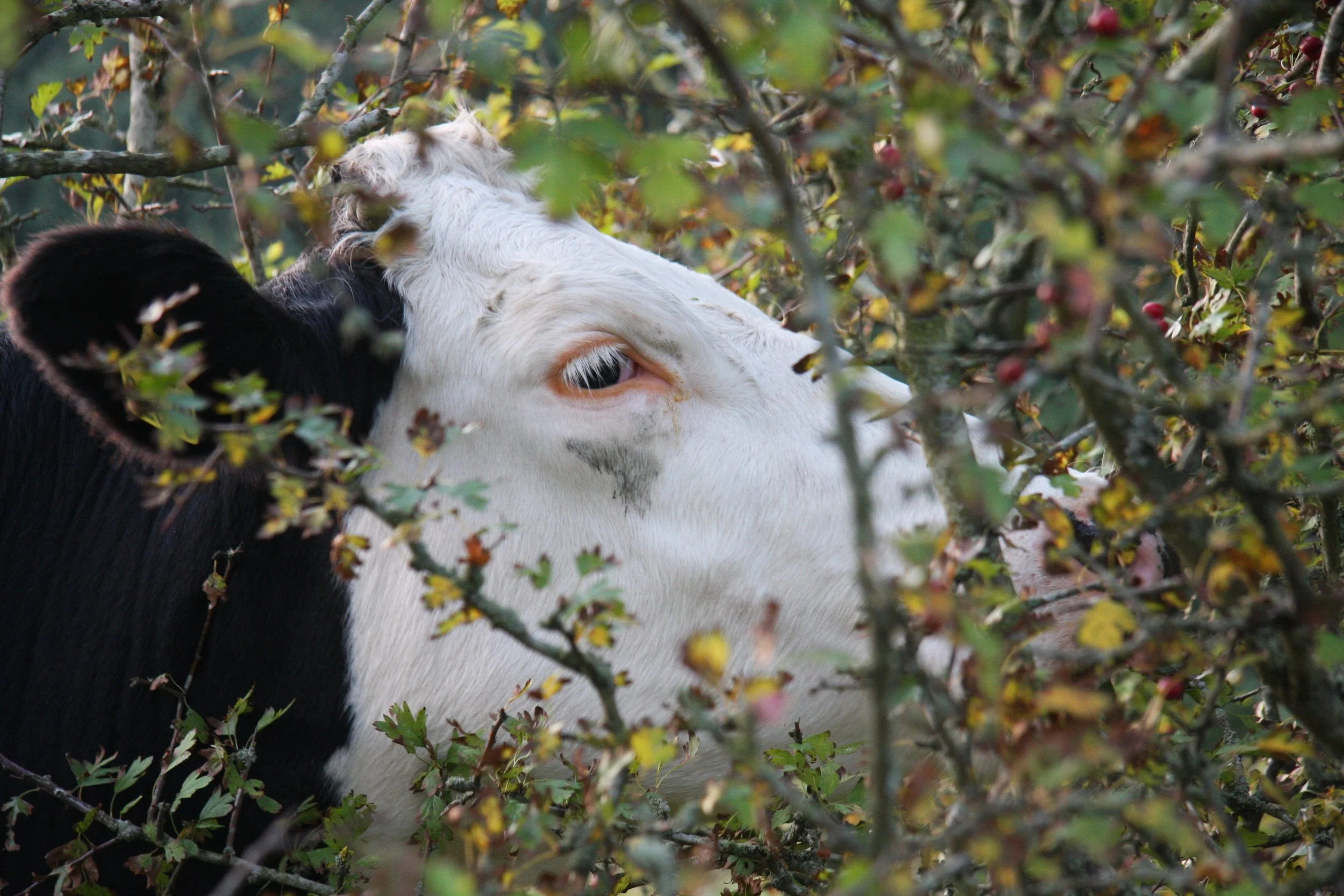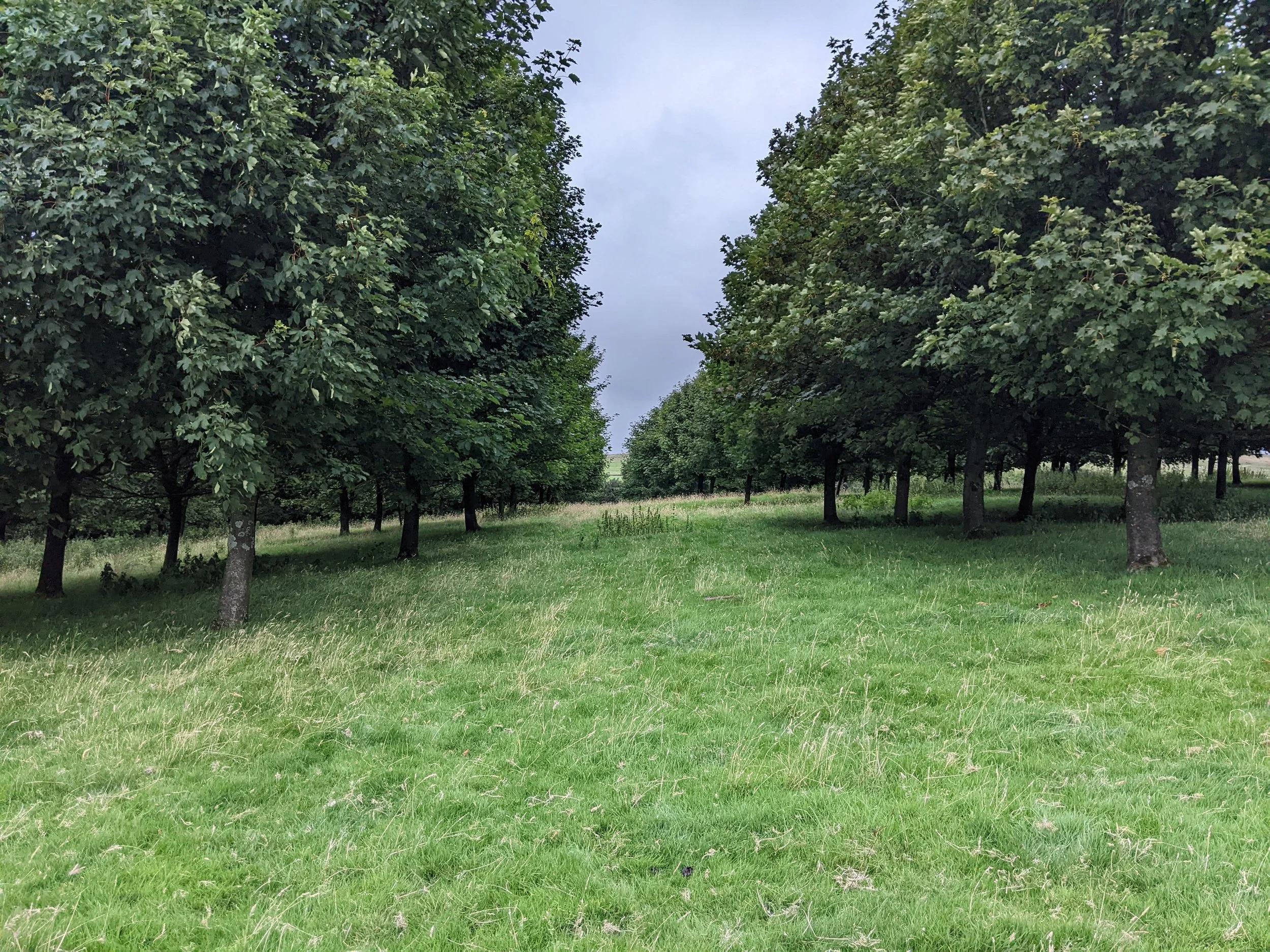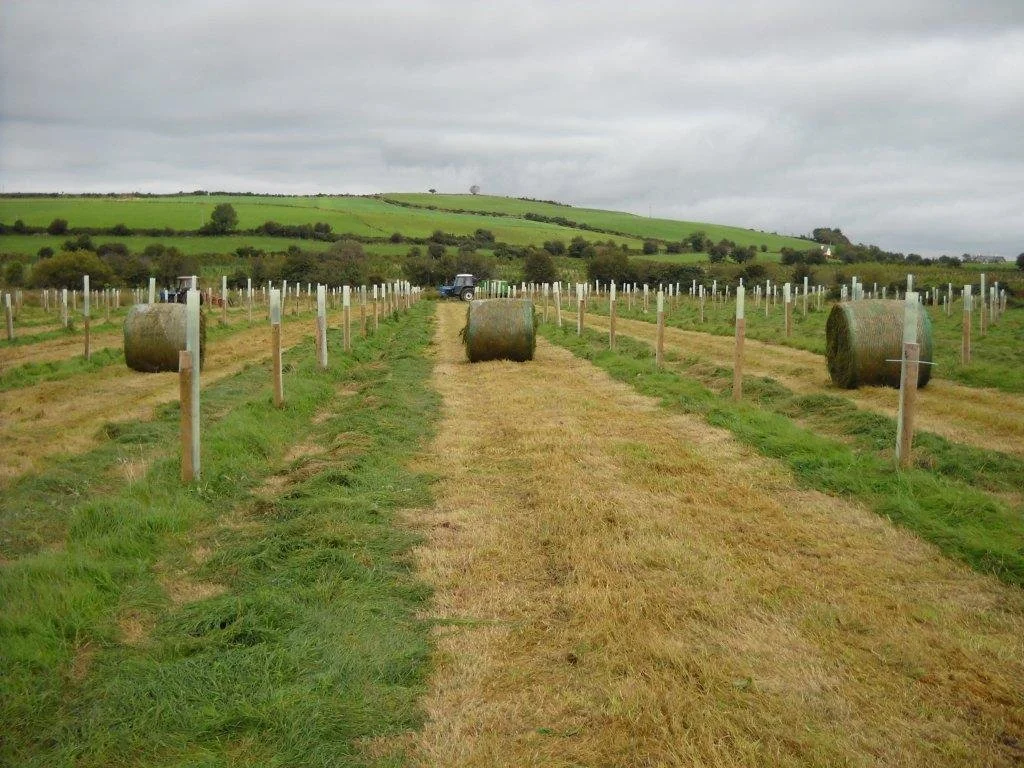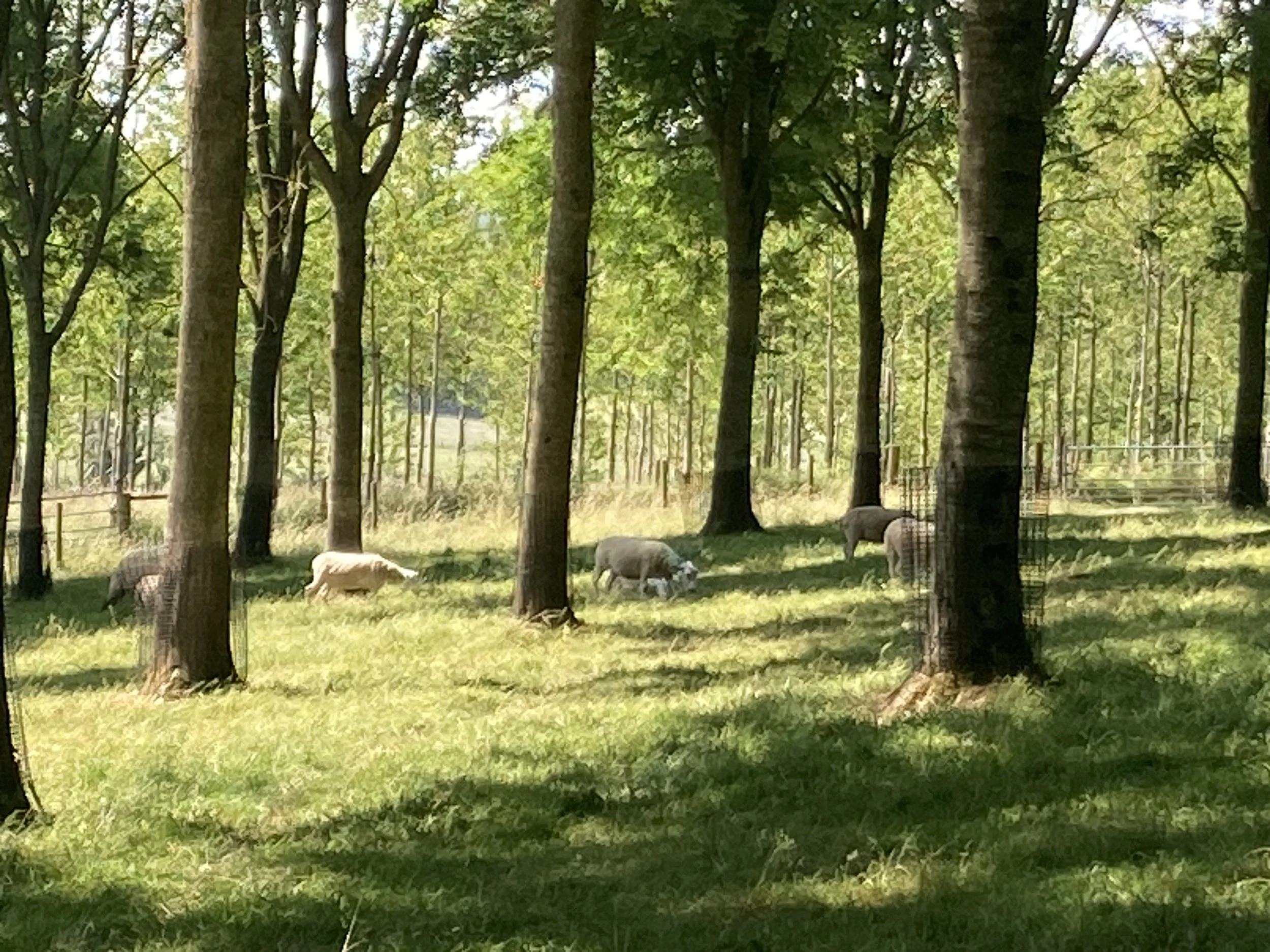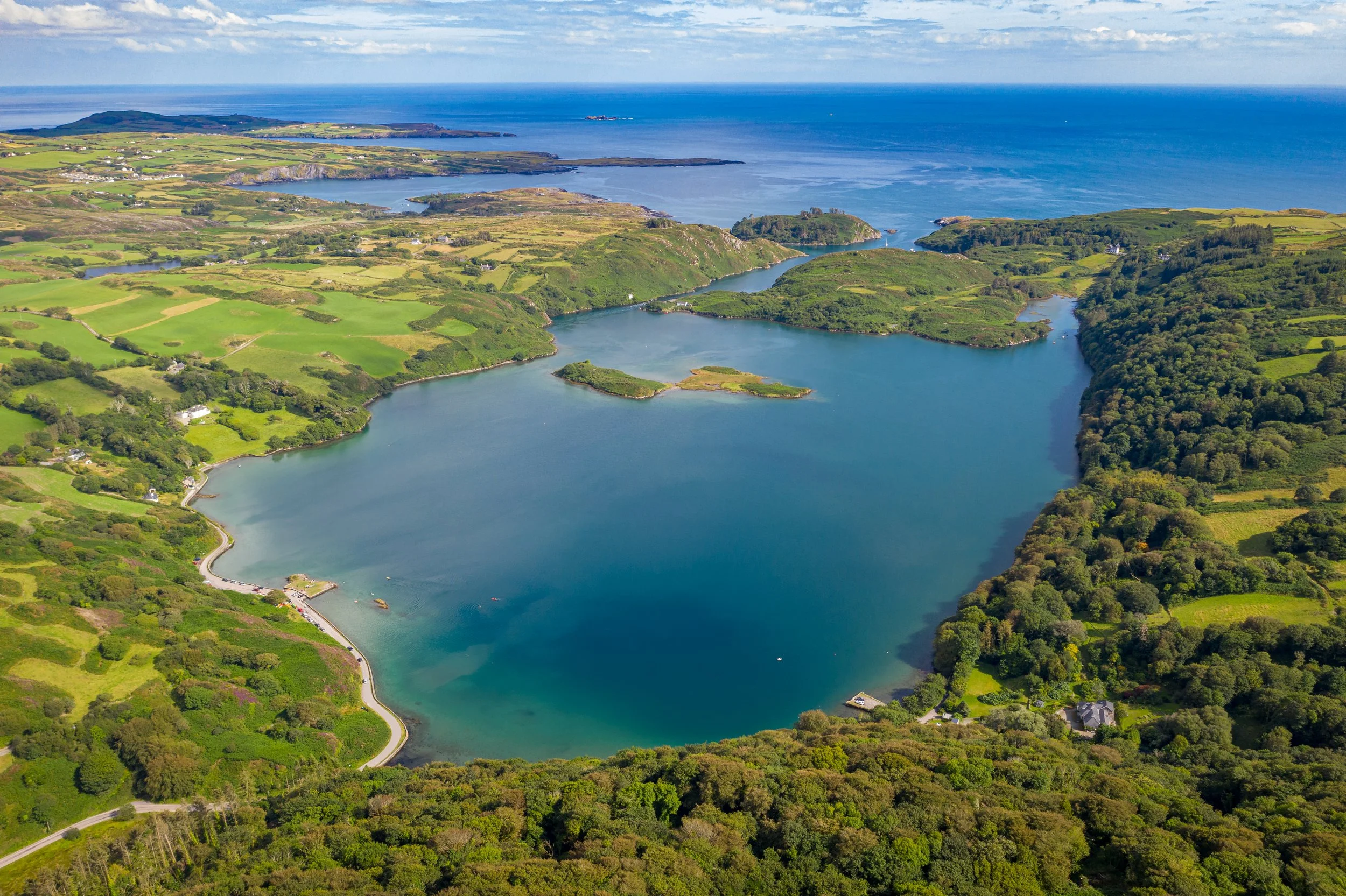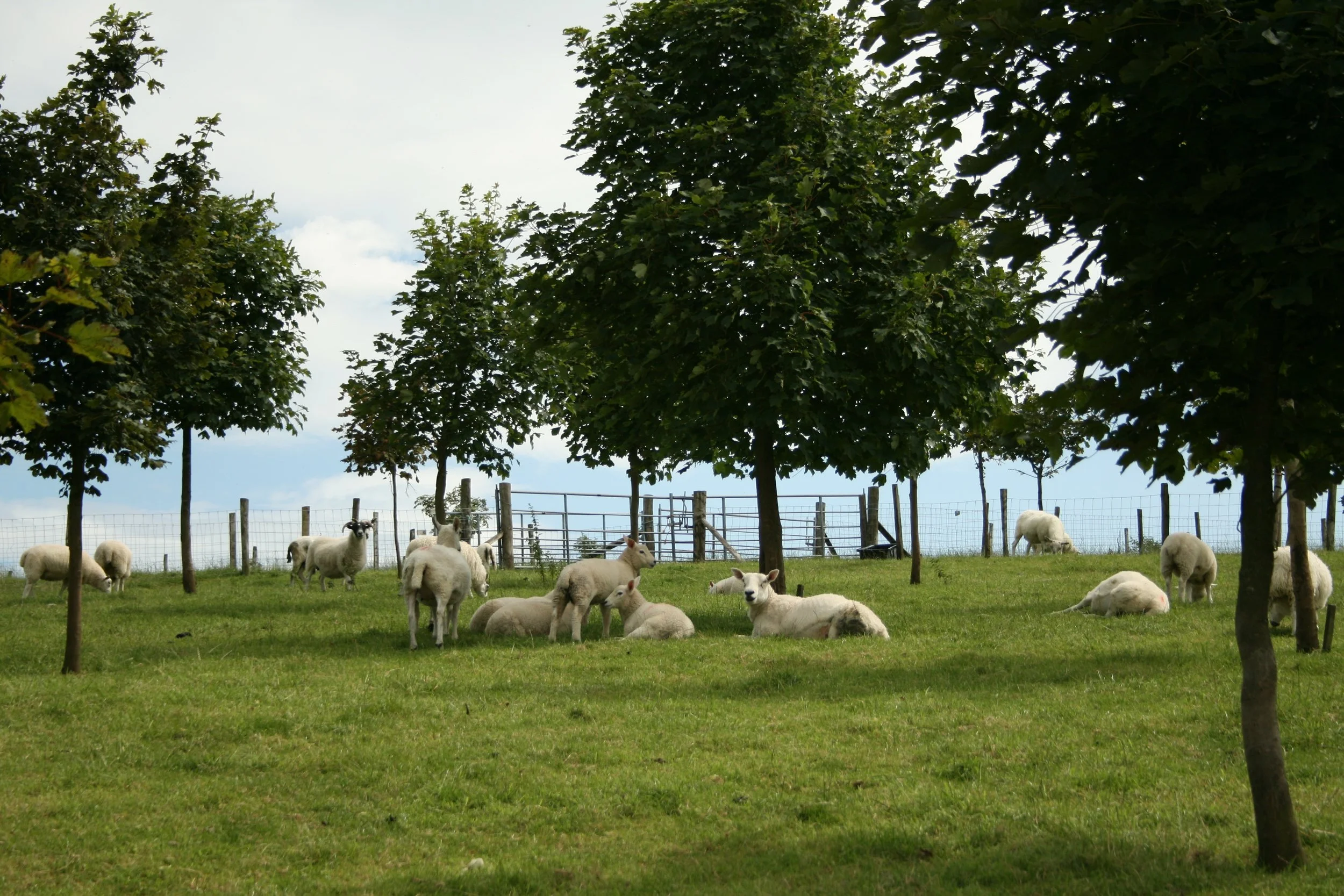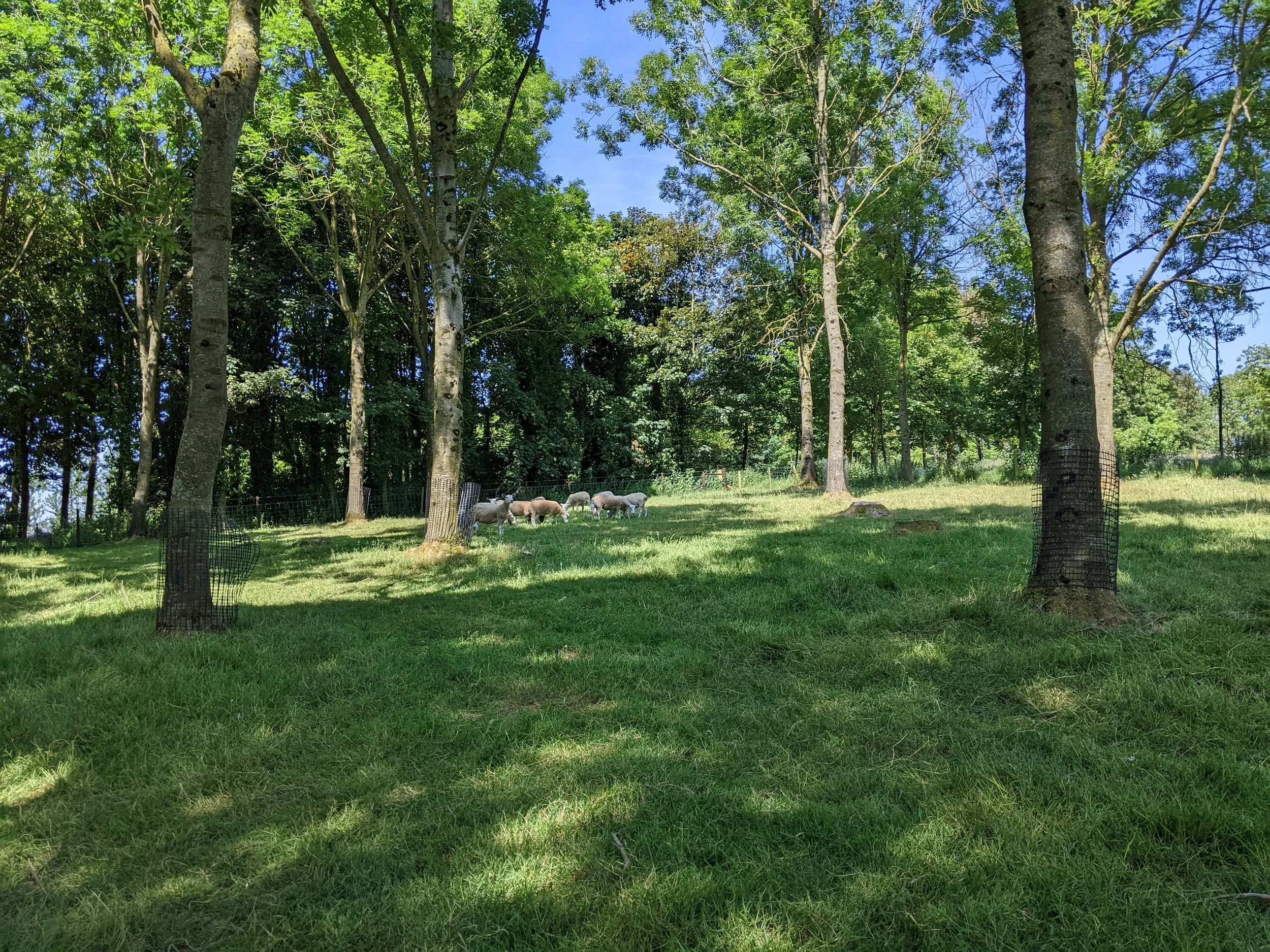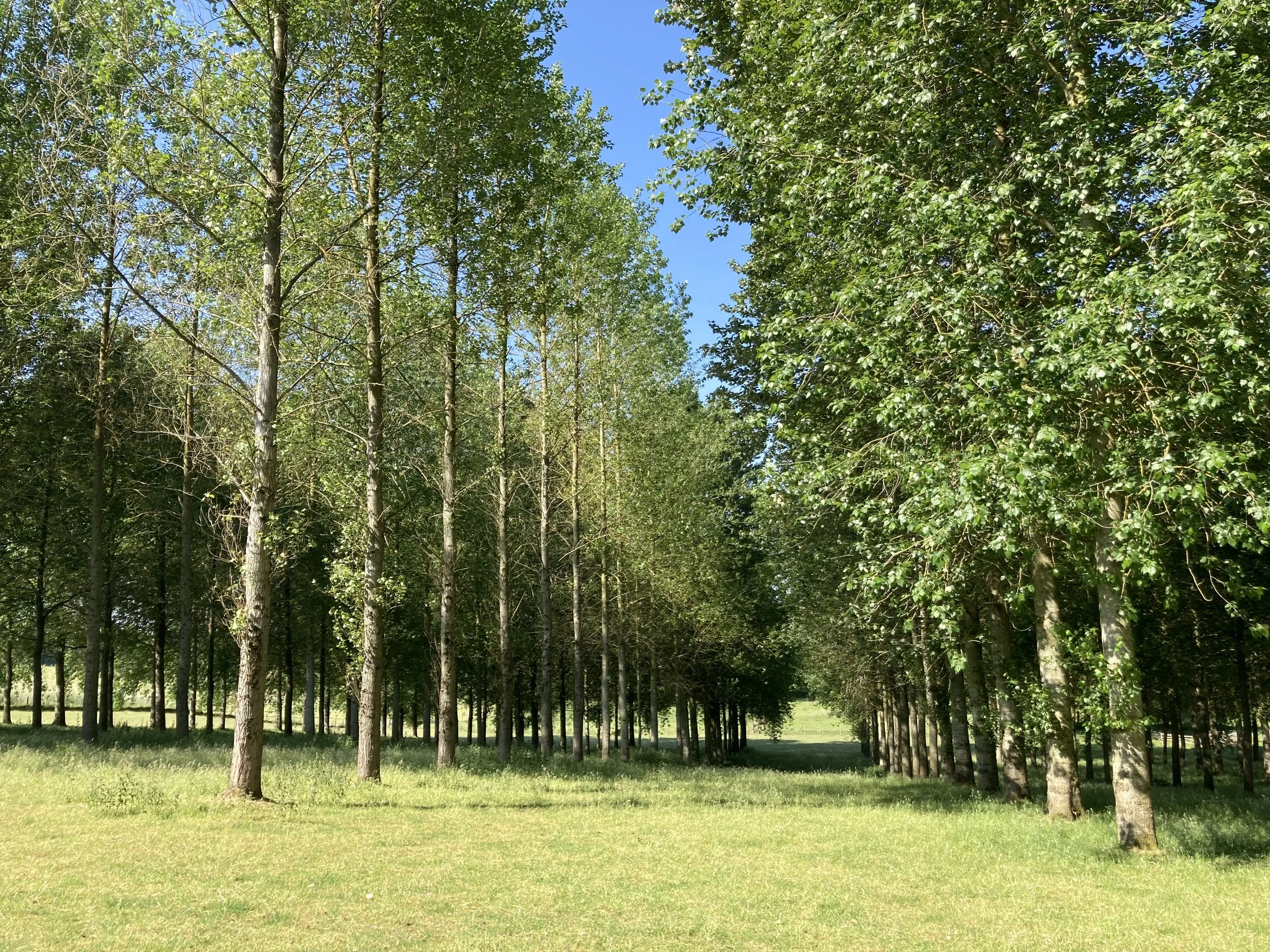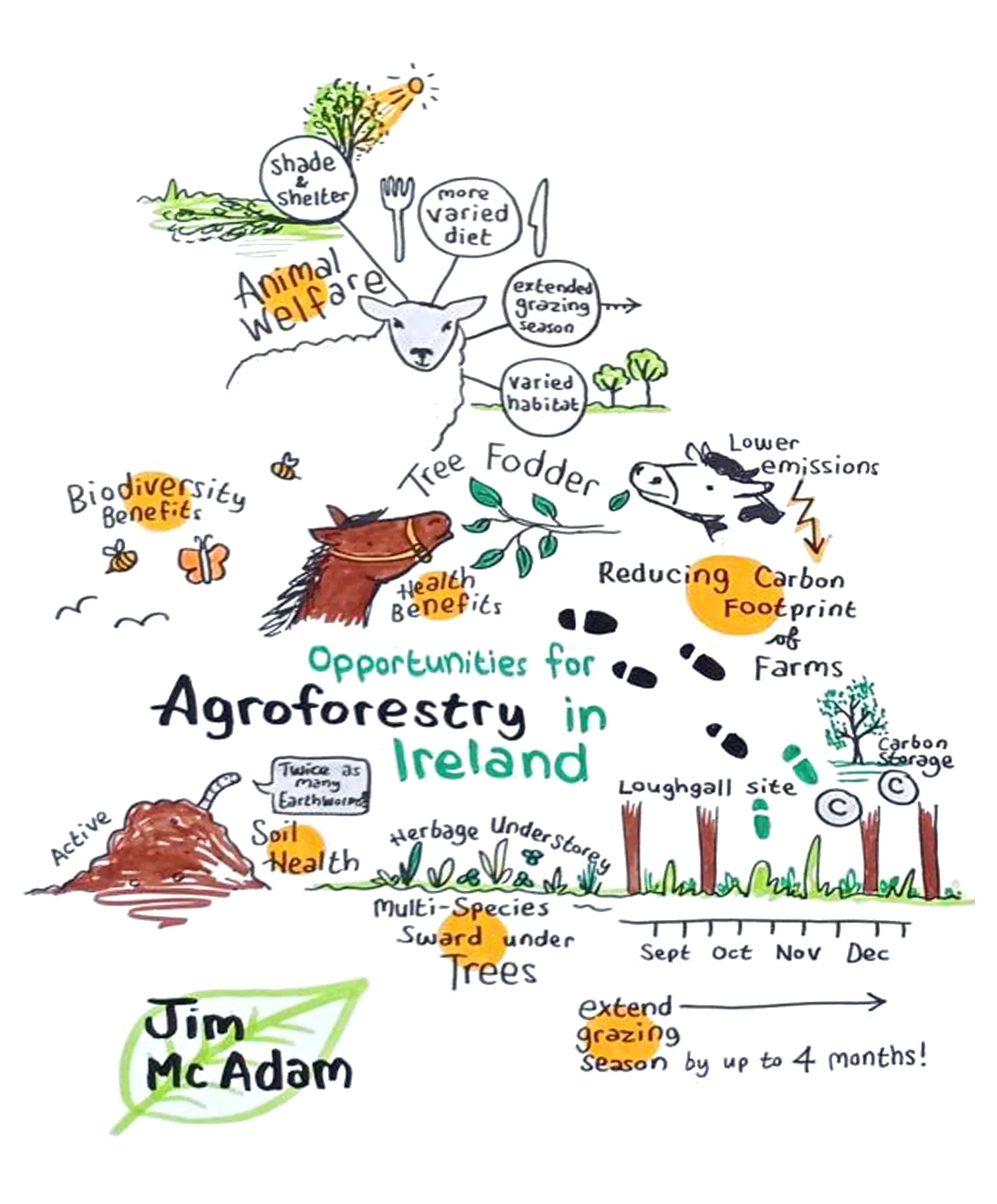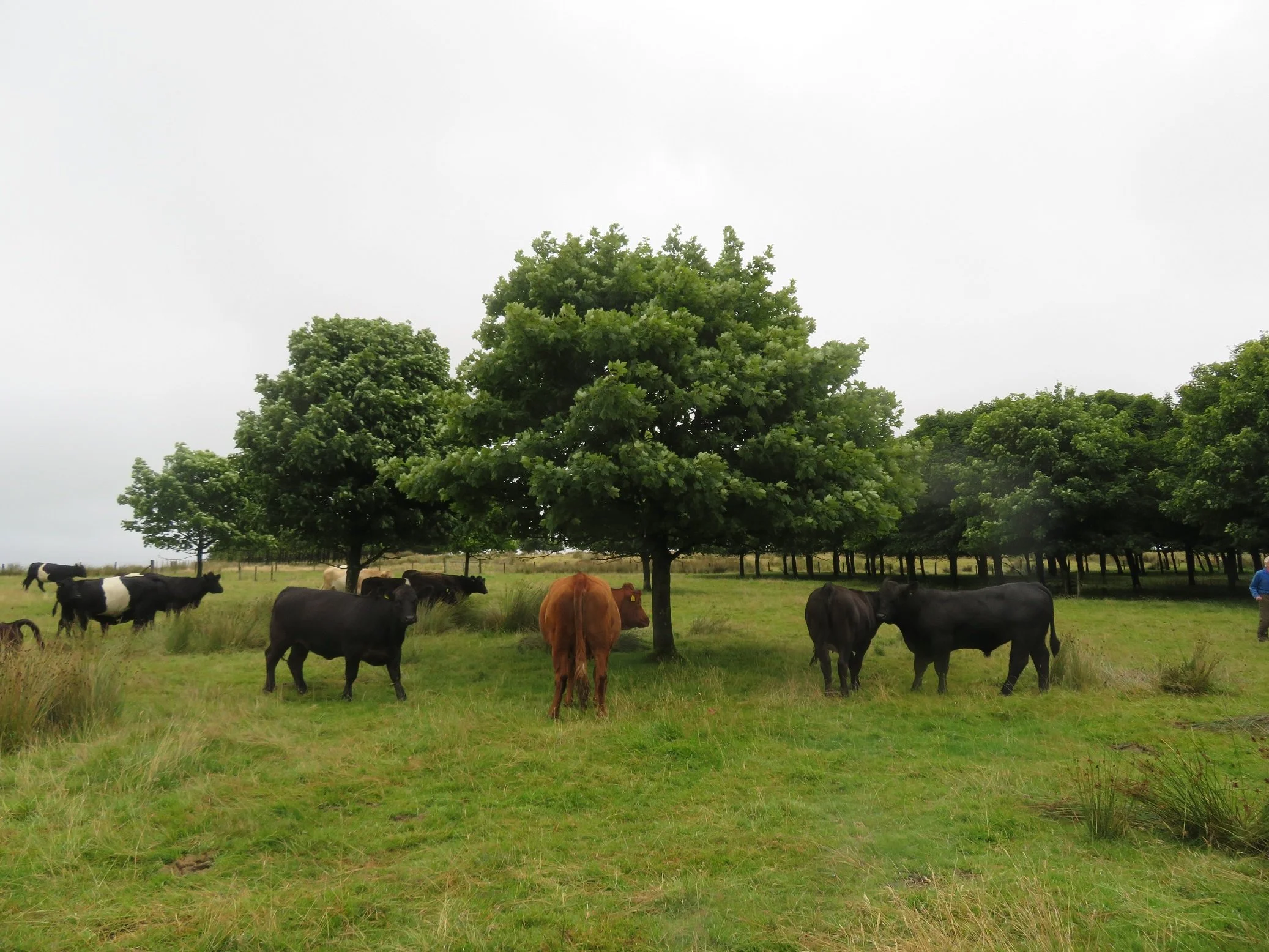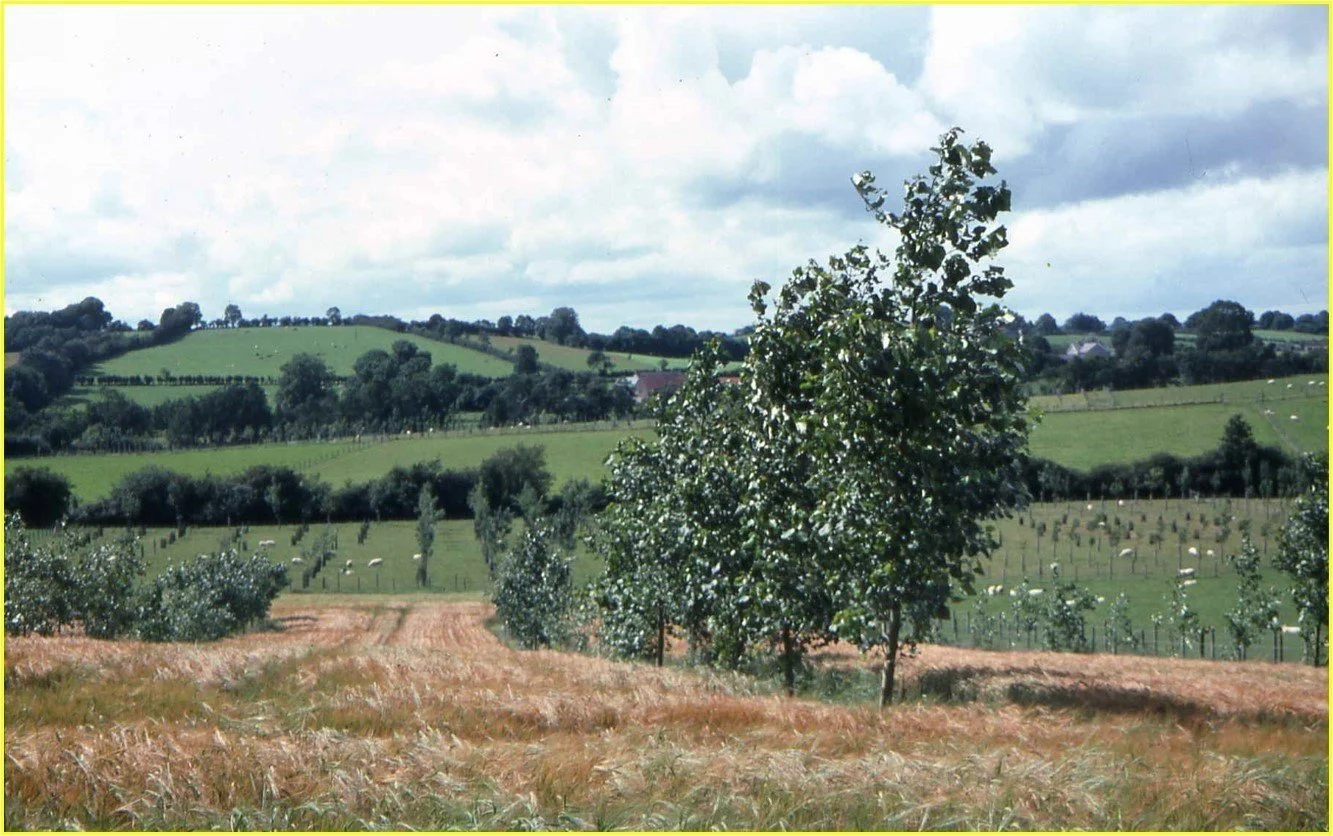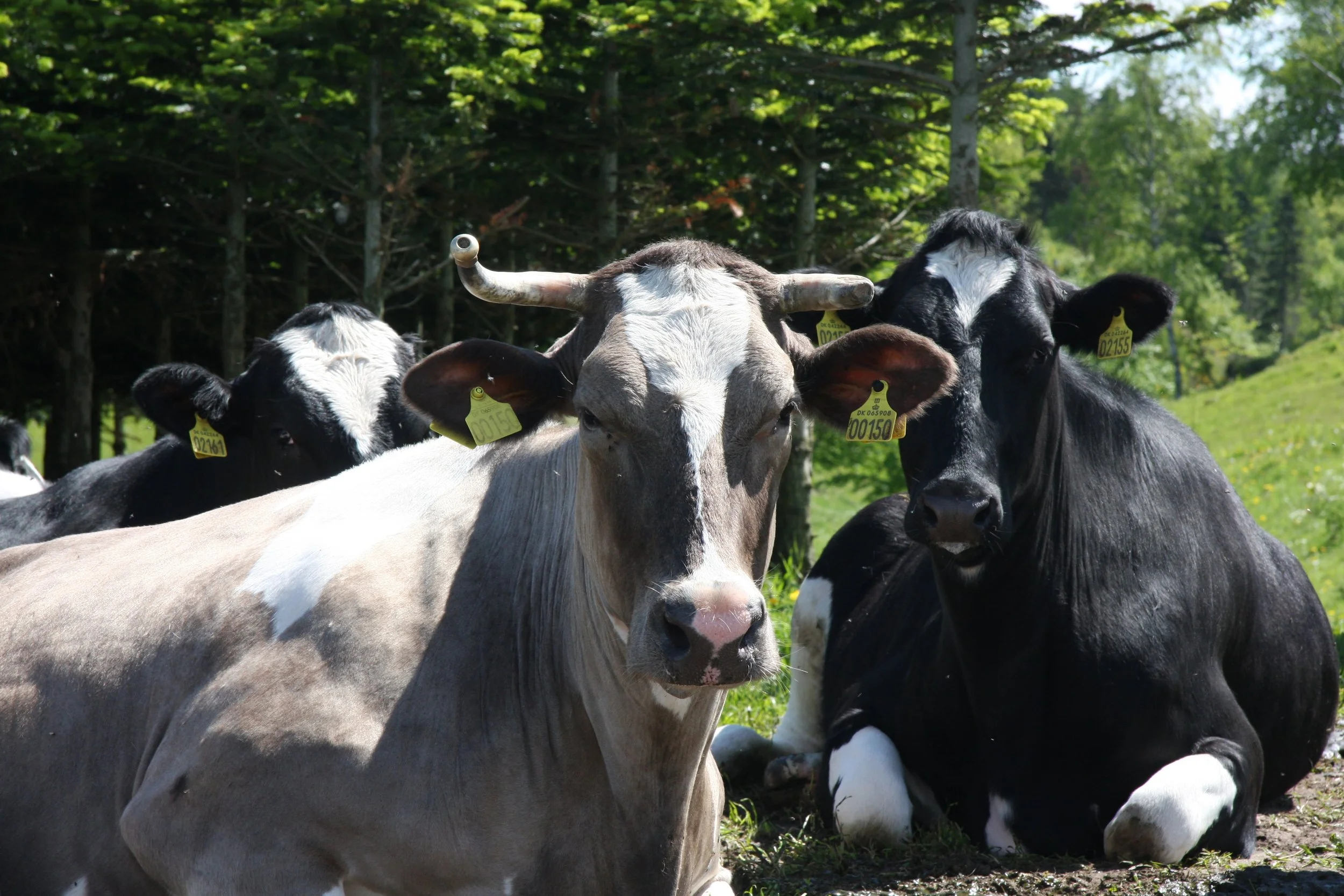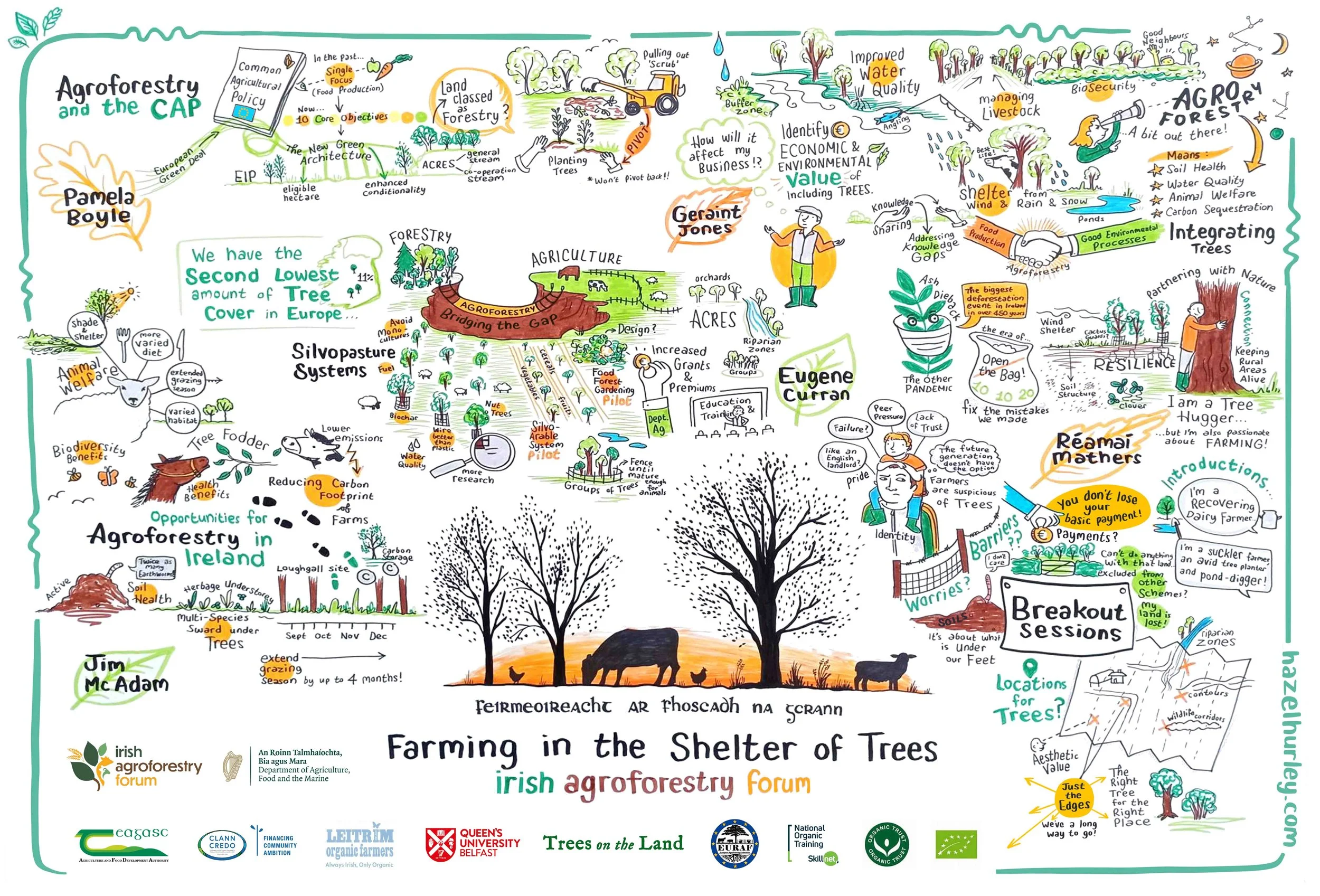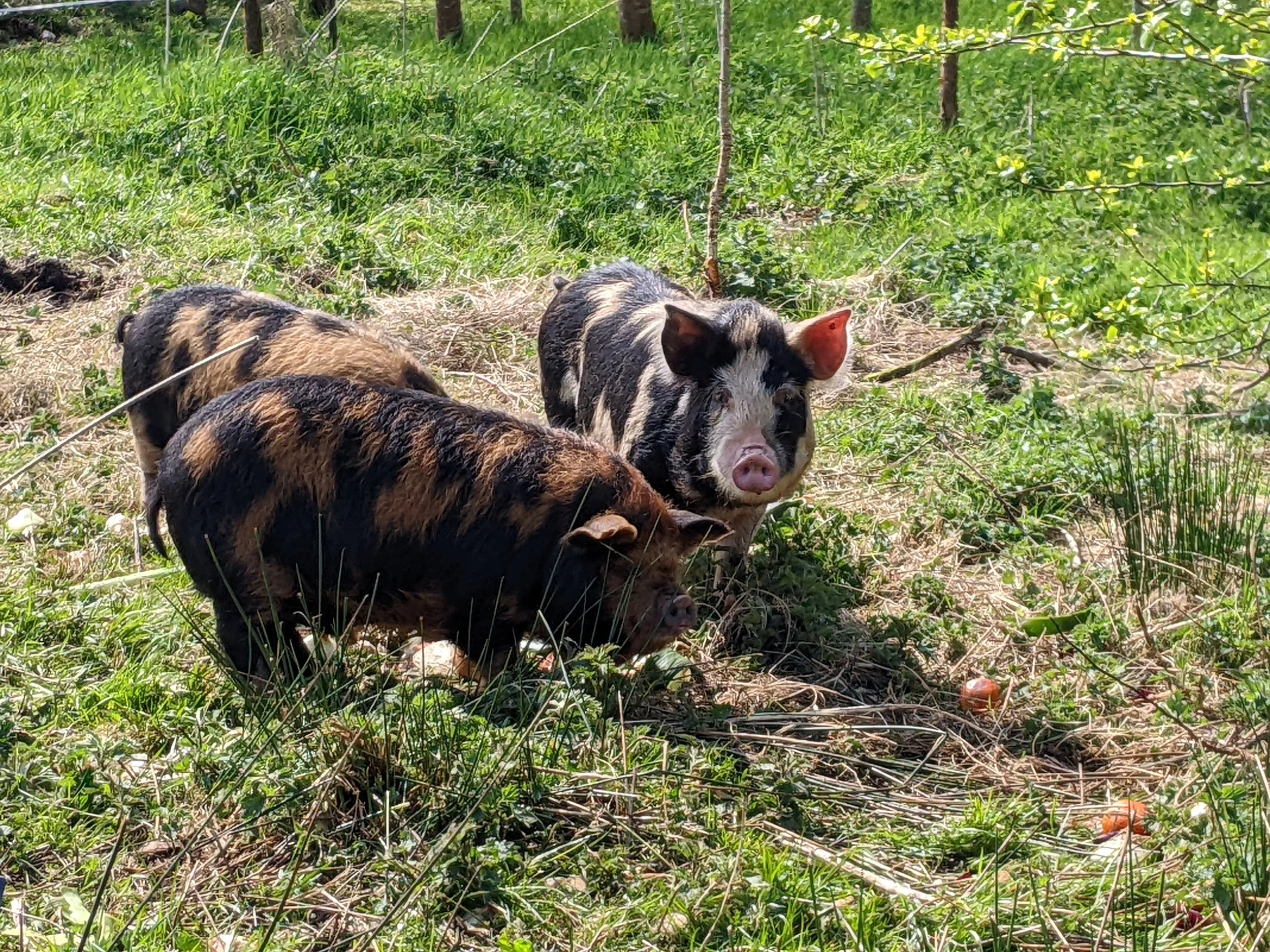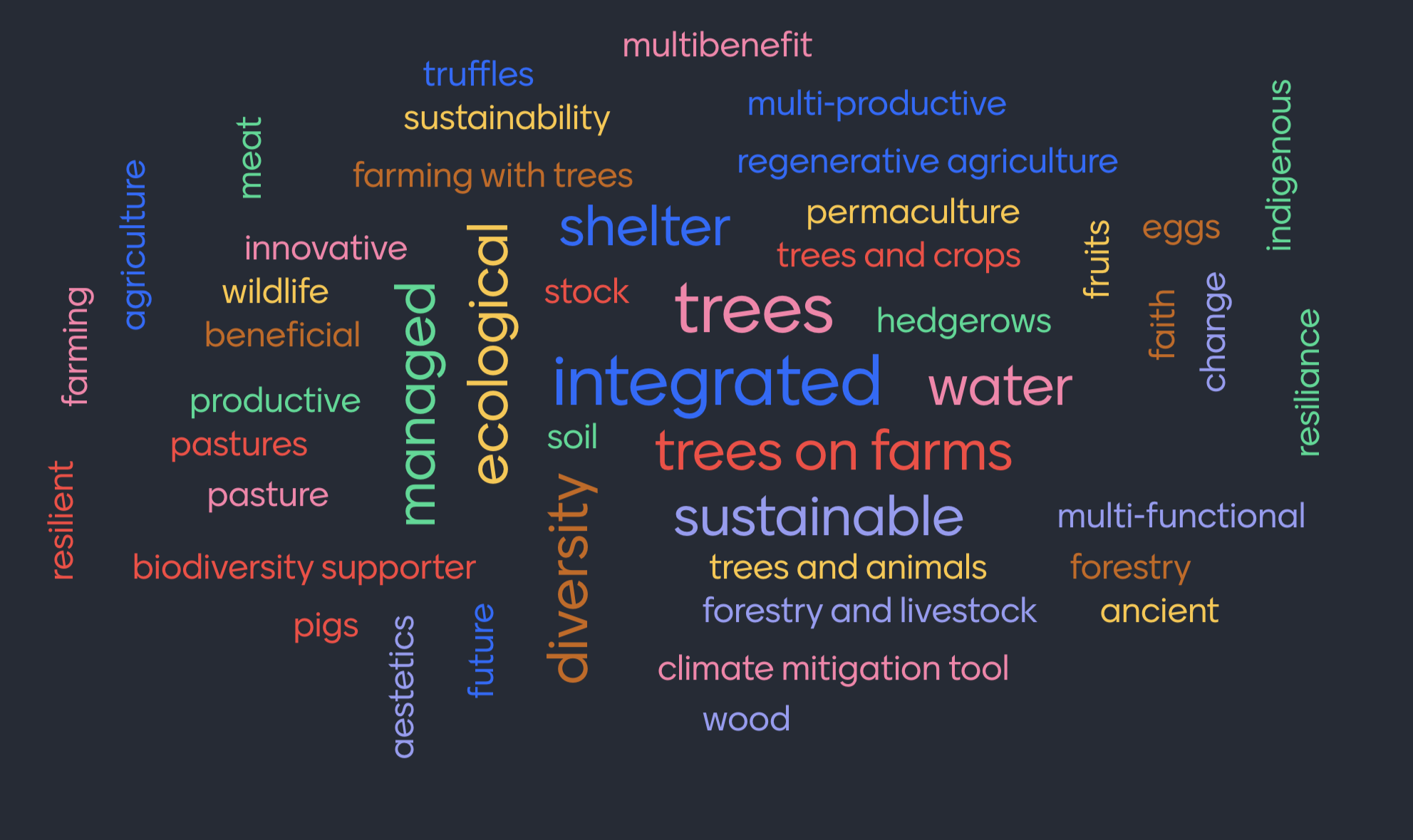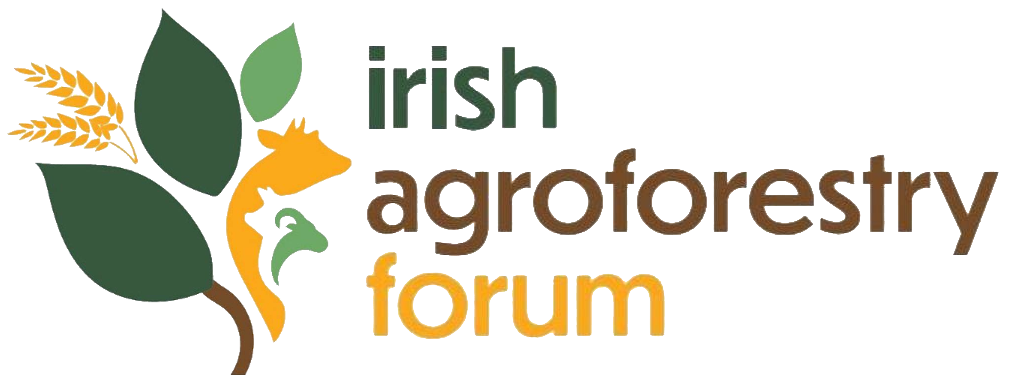
Event Over, please see below for conference proceedings
-
Professor Jim McAdam is a director of the Irish Agroforestry Forum. Jim is an agronomist who specialised in researching sustainable grassland systems and in the potential for silvopastoral agroforestry systems to deliver a wide range of ecosystem services. He initiated (in 1988) the agroforestry research programme in NI and on retirement from the Agri-Food and Biosciences Institute in 2018, was head of the Grassland and Plant Sciences branch. He remains active in silvopastoral research and in promoting agroforestry systems across the island of Ireland. He has a particular interest in developing climate-resilient farming systems. He is an honorary professor in the School of Biological Sciences, Queen’s University Belfast and an Associate with Ulster Wildlife. TALK PDF
-
Una is an Education & Training Facilitator and supports the Irish Agroforestry Forum by assisting in the delivery of practical, on-farm training days and education events focused on integrating trees into farming systems. Her work ensures participants gain both technical knowledge and hands-on skills in agroforestry practices. With over a decade of experience in organic horticulture and sustainable food systems, Una brings a deep well of practical and educational expertise to her role. She holds a Postgraduate Diploma in Organic Farming from SRUC, alongside multiple QQI-accredited certifications in Training Delivery and Evaluation. Una currently serves as Coordinator of Organic Growers of Ireland (OGI), where she manages the national internship programme and leads educational initiatives including seasonal workshops, webinars, and conferences.
-
Terry Thomas is an agricultural economist who was appointed as lecturer in Agricultural Economics in the then Agriculture department at Bangor University in 1972. In the mid eighties the department merged with Forestry and Terry became interested in the idea of introducing trees as an economic enterprise on farms in the United kingdom. He travelled to Chile and New Zealand with assistance from the Royal Society and the Agriculture and Food Research Council and was introduced to a well organised and understood form of land use in those countries which we now call temperate agroforestry. He continued to teach at Bangor University and over the next 18 years with the aid of EU funding developed a suite of spreadsheet based bio economic models(BEAM) which were applied to a range of tropical and temperate agroforestry systems. In 2003 he retired from Bangor, gave the bioeconomic models to Cranfield where they were further developed under the Stewardship of Prof Paul Burgess. In his retirement he continued to work but this time with farmers directly. He was technical editor of a book translated from the French on how to plant trees on agricultural land and later went on to design, plant and manage 5 woodlands. He also found the time to help one of them to set up a water bottling plant and two others to build wind turbines into their business. Terry says he’s lucky because he worked with people who could already see the writing on the wall……he just helped them along the way .
-
Ailbhe is a Nuffield Agricultural Scholar. She travelled the globe 2016, 2017 to research farmers selling directly to consumers, and she presented a report at the 2017 Nuffield Conference. She currently lectures at Gurteen Agricultural College, teaching ‘Key Issues in Agriculture’ and Farm Business planning and management; and she is preparing regenerative agriculture courses in the UK as a trainer with Organics International 2019. Ailbhe participated in the ACORNS entrepreneur programmes 2015, and she is involved with a Teagasc and GMIT Letterfrack project to test Irish hardwoods quality and provide new markets for small dimension hardwoods.
-
Dr Ian Short is a director of the Irish Agroforestry Forum. He is also forestry researcher with Teagasc working in broadleaf silviculture and alternative silviculture systems. He has a Ph.D. from Queen’s University and has published more than 30 studies and papers on the topics of agroforestry, silviculture/silvopasture, broadleaf tree selection, sustainable land management, and more. Dr Ian Short is a member of EURAF (European Agroforestry Federation) and the UK Farm Woodland Forum (formerly UK Agroforestry Forum).
-
Gavin Lynch, a farmer from Donard, Co. Wicklow, stands out in the agricultural landscape. While his family's farm primarily focuses on organic dairy farming, Gavin has taken a unique path by cultivating a sizable hazelnut enterprise. Amidst the routine of dairy operations, Gavin tends to 1,500 hazel trees. His farming journey began with a degree in agricultural science in Essex. Returning to Donard, he combined traditional organic dairy farming with the experimental hazelnut orchard.
-
John Casey is a Forestry Development Officer with Teagasc since 2001, with more than 30 years of experience in Ireland’s public and private forestry sectors. He holds a B.Agr.Sc (Forestry) from UCD and a Certificate in Agroforestry from Ballyhaise College. He has specialised in forestry economics and advisory innovation, contributing to tools like the FIVE valuation model and coordinating Work Package 3 of the Horizon Europe AF4EU (Agroforestry) project 2023-2035. He also contributes to national forest protection, wildfire strategy, and policy through the PEFC Certification Review Group and DAFM’s Windblow Taskforce.
John holds a Higher Diploma in Business Studies (WIT), a Level 9 Diploma in Leadership Development (UCC/IMI), and has additional credentials in fire and deer management. He has authored numerous technical and advisory publications and regularly contributes to forestry extension training and multi-actor innovation networks.
-
Assistant Principal of Cork College of Further Education – Kinsale Campus & Coordinator of the Permaculture and Sustainable Horticulture Course in Kinsale Campus. Donal has a Degree and Masters in environmental science and a Post Graduate Diploma in Education and has been involved in conservation work and food production for 25 years.
Currently Chair of the Transition Town Kinsale sustainability initiative overseeing and contributing to a wide range of projects including Kinsale Community Energy Project, biodiversity initiatives, zero waste promotion, local food initiatives and sustainable transport. Has organised multiple conferences on food production and agroforestry in Kinsale since 2016. Donal has started a social enterprise in 2023 called Regenerate focusing on rewilding and agroforestry systems.
Donal has a particular interest in getting people involved in practical hands-on projects in their community and works to inspire people through reconnecting them with nature, growing their own food and generating their own energy also.
https://regenerateourecosystem.ie/
https://www.transitiontownkinsale.org/
-
Claire and Thomas O’Connor fell in love with fresh, local and organic produce then set about buying their own their farm in 2007. It is in the Gleann na nGealt valley near Camp, Co. Kerry – a 25 acre smallholding with 4 empty fields and a yard with 3 small leaking outbuildings. After a lot of intensive work they now have the basics of a working mixed farm. All the produce from the farm is sold directly to their own farm shop www.mannaorganicstore.ie in Tralee.
Originally grazing ryegrass the farm is now a multi-environment ecosystem. Their conventional sheep farm converted to a mixed organic holding 15 years ago, with 4 acres of horticulture, 4 acres of agroforestry, 4 acres of permaculture & 13 acres of native Irish woodland.
The farm and store have full organic certification and all the farm waste organic material and that from the farm shop www.mannaorganicstore.ie is recycled as compost or as animal or poultry feed.
Although they weren’t farmers, the minute the O’Connors spotted the 25-acre holding, they knew it was for them. They sold their pub, left their jobs, bought the land and they’ve never looked back.
As they say themselves they have done a lot, but “there’s a lot more to do”!
-
Jane has PhD in grassland science from University College Dublin and runs a suckler to beef farm in County Cavan which has been certified organic for almost 30 years. The 200 acre farm consists of a diversity of grasslands, woodlands and semi natural habitats. Jane runs a herd of Aberdeen Angus cross cows with Stabiliser, Belted Galloway and Limousin genetics. There is a strong focus on animal performance within a low input, early maturing beef system. Alongside permanent pastures and sown red clover swards, the farm has extensive areas of semi-natural habitats including rare lowland hay meadows, bogs, wetland, woodland, hedgerows, and stonewalls. New habitats have been created, such as a 40 acres of mixed conifer and hardwood woodland which has been managed as agroforestry in the past; hedgerows and an ornamental garden all of which support a varied bird population. The farm has traditional orchards, bee hives and is self-sufficient in vegetables. Monitoring of birds and insects for Biodiversity Ireland is ongoing. The farm hosts farm walks and a publicly accessible nature walk passes through the farm.
-
Clive raises 100% pasture-fed organic beef on his 120-acre farm in Ballymote, Co.Sligo, and he sells his beef direct through his business ‘Rare Ruminare’. His livestock are a mix of traditional breeds such as Hereford, Shorthorn, Angus, Irish moil and Galloway, well suited to thrive on the farm’s species-rich grasslands. He uses Holistic Planned Grazing, an adaptive grazing rotation that gives pastures adequate time to recover between grazing events. Using ecological principles and monitoring, Holistic Planned Grazing also allows him to formulate a plan to have his animals in the right place at the right time for the right reasons. This management has dramatically increased the diversity on his farm. Working
with the land’s natural capacity and the right genetics, Clive has shown you don’t have to supplement the animals’ diet if you work with nature. Clive is a great advocate for Agroforestry – merging trees and agriculture. He says, “Woodland pasture or silvopasture is the ideal habitat for livestock, providing shelter and shade and a source of additional nutrients. Trees over pasture add another level of green leaves multiplying the amount of solar energy the land captures; this enhances the mineral and water cycle and restores soil health, bolsters biodiversity and the overall resilience and productivity of the farm”. Over the last few years, ponds and wetland creation have become an integral part of Clive’s farm. He rationalises that if all life requires water, we should try to harness and cycle every drop that falls on the farm. From simple measures like making slit traps in old drains to new pond construction, holding water in the landscape and allowing it to soak deep into the soil rather than draining it away is his goal. Most of his wetland features have multiple uses, like slowing water down in the landscape, wildlife habitats, and reservoirs for livestock drinking water. -
Sean Condon was an organic dairy farmer from Crecora County Limerick. He farms about 140 acres of good grassland and ran an extensive dairy farming system, milking 50 cows once a day. He now farms beef cattle and has just planted an agroforestry system using the FT8 supports available under the Afforestation Programme 2023 to 2027. External inputs on the farm are extremely low and Sean takes pride in managing a low-input, low intensity productive farm. Sean is passionate about maintaining traditional farming systems whereby production and nature work in harmony - “For me, farming for nature may be more about what I'm not doing rather than what I am doing”.
Permanent pasture, mature hedgerows, pockets of woodland and a pond all provide important habitats for the healthy population of birds and other wildlife on the land. Some years ago, a reed-bed system was installed to clean run-off water from the farmyard. Sean leaves wild plants grow around the farm and recognises their importance in farmland ecosystems - “if you don't have some weeds on the land then you don't have insects, and without insects there is not much food source for young birds”.
-
Sustainability Manager for Greenfield Foods Ltd (12 years). Peter is also a farmer and free-range egg producer.

